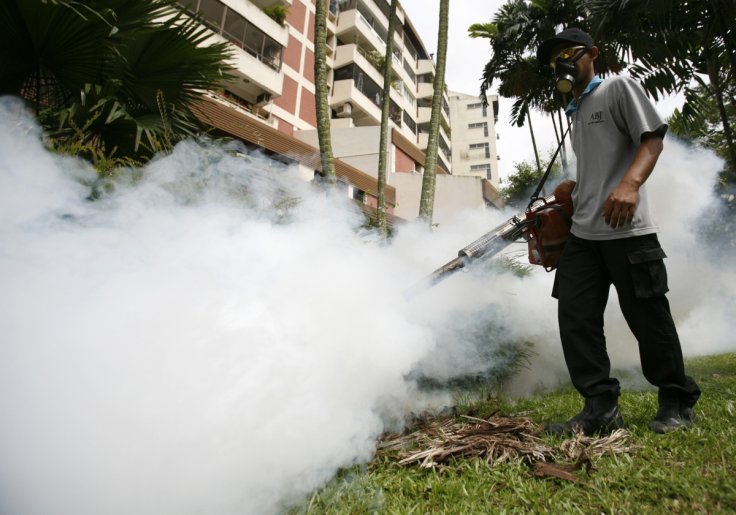
The number of dengue cases in Singapore is steadily increasing, with a warmer than usual weather aiding the breeding and maturation cycles of the Aedes mosquito population.
According to the National Environment Agency (NEA), as many as 628 dengue cases were reported in the week ending Jan 16. The agency said this is the highest weekly figure in more than a year and 81 cases more than the previous week.
The number of dengue cases reported last week is 170 more than the highest reported in a week in 2015, suggesting the mosquito-borne disease is steadily on the rise.
The total number of dengue cases reported so far this year in Singapore, which has a population of 5.5 million, stood at 1,368. The latest data also showed 193 new dengue cases were reported between Jan 17 and Jan 19, according to Channel News Asia.
Whereas previously most of the dengue infections were caused by the DENV-1 serotype the current trend is of DENV-2 serotype causing more than two-thirds of all dengue cases, the agency said.
It said this change in the dengue virus has also caused a spurt in infections. "This change in the main circulating dengue virus and the increase in mosquito population due to warmer weather may be contributing to the spike in dengue cases. Immediate measures need to be taken by all stakeholders to suppress the Aedes mosquito population," NEA said.
Singapore Dengue crisis -- Everything to Know
According to Singapore's ministry of health, four serotypes of dengue virus (DENV1-4) are circulating in the world. Dengue fever is transmitted to humans by the bite of an infected Aedes mosquito (Aedes aegypti and Aedes albopictus). It is not a contagious disease. Dengue carrying mosquitoes thrive in clean, stagnant waters. Dengue Fever usually develops within 4 to 7 days after being bitten by an infected mosquito.
Symptoms:
Sudden onset of fever for 2 to 7 days
Severe headache with retro-orbital (behind the eye) pain
Joint and muscle pain
Skin rashes
Nausea and vomiting
Bleeding from the nose or gums or easy bruising in the skin
Treatment
First of all, there is no vaccine currently available to prevent dengue. And there is no specific treatment as such. Dengue treatment is basically supportive and does not usually require hospitalisation except in cases of rare emergency.
In severe cases, fluid treatment, electrolyte replacement or blood transfusions are done to save lives.
For information on the latest dengue situation in Singapore, click here
For a map of dengue clusters click here
MOH Hotline: 1800-225 4122
NEA Dengue Hotline: 1800-9-336483 (1800-X-Dengue) or 1800-333-7777








